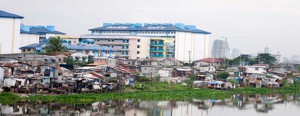
MANILA, Philippines – Population issues remain critical concerns in sustainable development in the Philippines.
Such was emphasized by the Philippine delegation in the 48th Session of the Commission on Population and Development held at the United Nations in New York City recently. The session was convened for UN-member states to discuss relevant and pressing issues on population and development.
The theme of the session was “Realizing the Future We Want: Integrating Population Issues into Sustainable Development, in the post 2015 agenda”.
The Philippine delegation composed of Dr. Juan Antonio Perez of the Commission on Population and head of delegation, Dr. Junice Melgar of Likhaan Center for Women’s Health Inc., Benjamin de Leon of the Forum for Family Planning and Development, Marevic Parcon of Women’s Global Network for Reproductive Rights, Helen Tibaldo of the Family Planning Organization of the Philippines and the Philippine Information Agency, Maria Narbuada of the Deparment of Foreign Affairs-NYC, and Arlene Ruiz of National Economic and Development Authority said that current initiatives in the country are focused on the remaining challenges of the International Conference on Population and Development (ICPD) Program of Action within our national context.
The delegation mentioned three critical population issues that need to be integrated in the sustainable development. First is universal access to reproductive health services which will lead to reduction in maternal mortality, improvements in infant and child health; improved access of young people to RH information and services to prevent and reduce teenage pregnancy; improved access to STI and HIV/AIDS information and treatment services; improved access of special groups (i.e. persons with disabilities, elderly, and indigenous people) to reproductive health services, financial protection for the poor in health care.
Second is the integration of population dynamics in development initiatives which include improvements in national and sub-national demographic and socio-economic database for evidence- based planning and policy development especially in mitigating and managing disaster risk; integrated urban management and rural development (addressing issues related to mobility and urbanization); and facilitating the necessary conditions for demographic dividend.
The last critical population issue is gender equality in sexual and reproductive rights. They mentioned that realizing the future we want essentially entails putting people at the center of sustainable development which is huge task in the context of prevailing poverty and inequality.
The delegates told fellow UN member states that despite economic limitations, the country will continue to pursue policy and program reforms that ensure integration of population dynamics and issues into sustainable development.
Dr. Perez was one of the speakers in the side event on Global Public Health with the theme” SRHR for the next decades: What’s been achieved? What lies ahead?” He emphasized that it is now crucial for countries like the Philippines, which are implementing the ICPD principles beyond 2015 into the Sustainable Development Goals to 2030, to look into three major issues: access to sexual and reproductive health services in the context of Universal Health Care; provision of quality health care even in geographically isolated and disadvantaged areas (GIDAs) and responsive and accountable national and local health systems.
In general, the session provided a venue and an opportunity to reach agreement on the population issues that are central to defining and implementing a post-2015 vision for sustainable development.








Leave a Reply